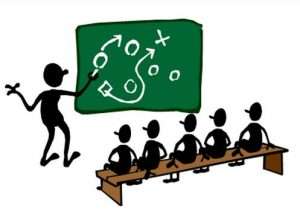How Do You Develop Leadership Skills in Your Employees?
The list seems to be everywhere on what makes a great leader and it usually includes some of the same characteristics and skills: honesty, clear communication, strong business acumen, and effective negotiation skills. What they tend to lose, however, is that effective leadership involves the right tactical strategy. Effective leaders learn how to launch a comprehensive series of short-term plans and long-term put their company on the road to the success of the company, but how do you develop leadership skills in your employees?
How to Develop Leadership Skills in an Employee
Whether the goal is leadership in teams or a management role in information technology, human resources, marketing, or other growing niches, obtaining the latest leadership training can help individuals to sharpen their skills and expand their network of peers. In turn, that can encourage professional and personal growth.
For business professionals and corporate leadership candidates who have to deal with a myriad of responsibilities, it can be challenging to find the time to improve their leadership skills and knowledge. One of the most effective options is to enroll in an executive certificate program offered 100% online with a university with a reputation for excellence. Certificate programs can be an effective in developing employees.
Another strategy for individuals looking to take their leadership skills from the booth to the C-suite includes:
- Join the local branch of a professional organization and get active in regional meetings to clarify goals and develop a more comprehensive understanding of industry trends
- Be active on LinkedIn and other professional based social networking sites to build a presence through prudent participation in online discussions
- Identify a mentor through alumni groups, professional organizations, or civic groups to develop the inspirational leadership skills they need to excel at the next level of management
Building a Leadership Plan
Often, the first step in designing a strong management leadership plan is to identify valuable skills and knowledge and then align it with their interests and career goals. In addition, an emerging leader can utilize a variety of sources, including:
- Consultation with admission counselors to compare the leadership program
- Meeting with representatives of human resources to identify opportunities for advancement in the working time
- Read reviews of alumni of educational institutions which attract
- Network with other professionals involved in the desired career path
Keep those organizational leadership skills up-to-date, then hone them with additional knowledge to improve potential employee’s leadership opportunities for those who want to move into management or current managers seeking to improve their leadership effectiveness. Executives, meanwhile, may get a clearer understanding of strategic leadership and certain disciplines within a company.
Effective Leadership Skills
Developing short and long-term leadership plans to put you and your company on the path to success. Before enrolling in a training program on executive leadership, it is important for business professionals to conduct thorough research on those programs to ensure you receive the greatest return on your investment. A program built, taught by industry leaders from all business sectors, can provide the skills, knowledge, and tactical strategy that will sustain professional development and increase the longevity of a career.
A Style of Leadership
The first thing that is important for a leader is to analyze leadership styles of. How do individual leads? What are the weaknesses that might hamper their leadership style from achieving their desired goals and objectives?
One way to assess this is to take different leadership style quizzes found online. These quizzes outline the important characteristics found in each style. Once a leader assesses his leadership style, then they can look for ways to improve the style and abilities to be a better leader.
An innovative leader should expand the capabilities of creative team members to bring new processes to the table The purpose of encouraging creativity is to help team members get out of their comfort zone and work harder to achieve success. This highlights the fact that Innovation is important in leadership.
Listening Skills
Listening skills are by far one of the most important aspects of good leadership. A good leader should be an effective communicator. they needs to communicate their goals and how they will be achieved. However, a good leader has to be able to believe in two-way and open communication. Listen to what team members have to say.
Developing Leadership Skills
Honesty, clear communication, good commercial acumen, and excellent negotiating abilities are among the qualities and talents appear on everyone’s list of what makes a great leader. Effective leaders understand how to create a complete set of short-term and long-term strategies that will put their firm on the path to success.
The last thing that a leader can do to improve is to realize that improving one’s capabilities is an ongoing process. They should never stop learning and educating themselves.
Author Bio: Oscar Mitchall is a professional author at a college essay writing service. He is always ready to provide students with interesting, high-quality, and inspiring essay writing on any topic.















Leave a Reply